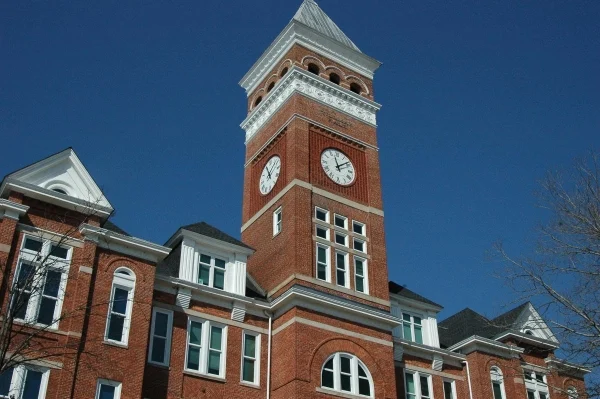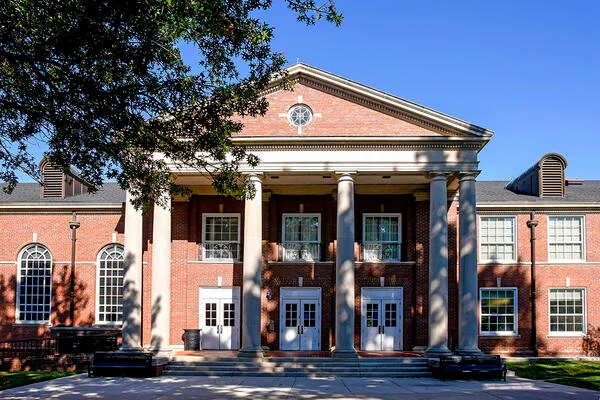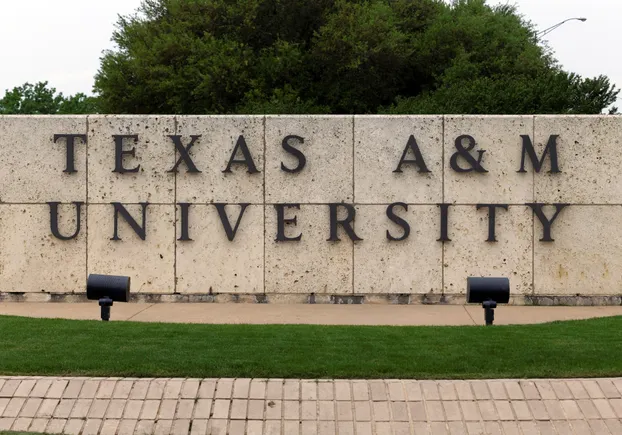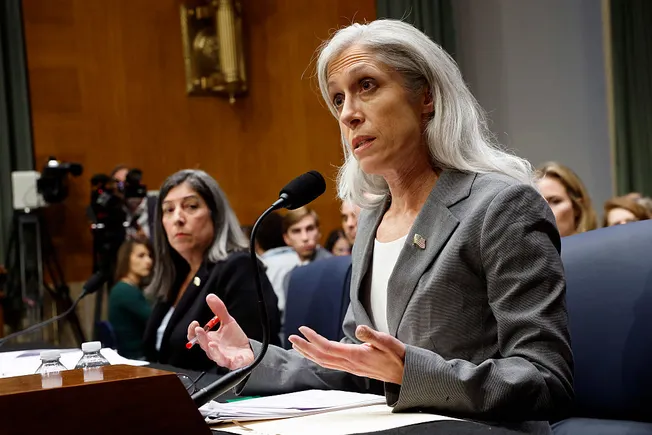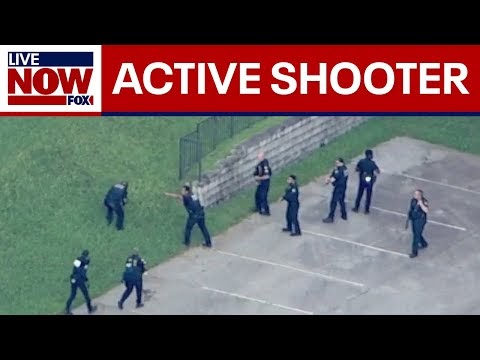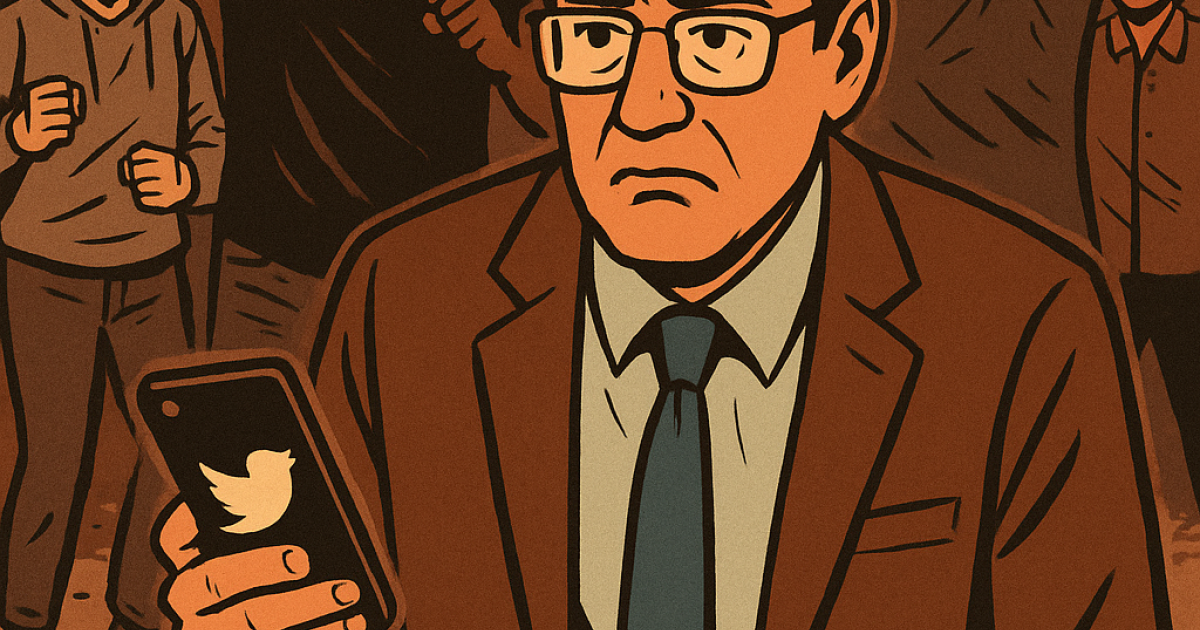In the summer of 2020, two issues dominated the headlines: the COVID pandemic and the widespread unrest surrounding George Floyd, Black Lives Matter, and the “racial reckoning.” It was in this environment, with the country also at or near the apex of “cancel culture,” that the University of Central Florida tried to fire associate professor of psychology Charles Negy for his tweets about race and society. Negy fought back and sued.
Five years later, his lawsuit continues — and last week, it brought good news not just for Professor Negy but for everyone who cares about free speech on campus.
Last week, Judge Carlos E. Mendoza of the U.S. District Court for the Middle District of Florida ruled that Negy’s lawsuit could proceed against four of the five administrators he sued. Importantly, the court denied claims of qualified immunity, a doctrine that says public officials aren’t liable for unconstitutional activity unless they knew or should have known their actions were unconstitutional. By denying qualified immunity to UCF’s administrators, Judge Mendoza formally recognized what was obvious from the very beginning: UCF knew or should have known that what it was doing violated the First Amendment, but they went ahead and did it anyway.
(As a note, Negy is represented by Samantha Harris, a former FIRE colleague, which is how I learned about his case a few years ago.)
Negy was fired for his speech, then re-instated by an arbitrator
In the summer of 2020, Negy posted a series of tweets (since deleted) commenting on race and society. (For example, on June 3, 2020, he tweeted: “Black privilege is real: Besides affirm. action, special scholarships and other set asides, being shielded from legitimate criticism is a privilege.”)
After some students complained to the school about Negy’s tweets, UCF responded by soliciting further complaints about him. That led to the opening of an investigation into Negy’s classroom speech as well. Seven months later, what began as an investigation of tweets led to 300 interviews; which led to a (get ready for this) 244-page report. As I wrote at the time, the report made absolute hash of academic freedom with what struck me as nonsensical lines drawn between speech it believed to be protected and unprotected:
According to the UCF investigation, it is protected speech to say that girl scouts preserve their virginity (p. 25), but not that women are attracted to men with money (p. 26). It is protected speech to say that Jesus was schizophrenic (p. 36), but unprotected to say that Jesus did not come into the world to die for everyone’s sins (p. 36). It’s protected to say that Islam is cruel and not a religion of peace (p. 107) but not that it is a toxic mythology (p. 35).
Based on the report, in January 2021, UCF administrators decided to fire Negy without providing a normally required six-month notice period — allegedly because he was a “safety risk.” (Caution: Dangerous Tweets!) Unsurprisingly, in May of 2022, an arbitrator ordered him re-instated, citing a lack of due process. And as I pointed out then:
UCF’s case against Negy was never likely to survive first-contact with a neutral decision-maker. When an investigation of tweets includes incidents from 2005 — the year before Twitter was founded — either the investigator is lying about their purpose or confused about the linear nature of time.
In 2023, Negy sued the institution and five individuals who had been involved in the UCF decision. Some of Negy’s claims were dismissed last year; the recent ruling was on motions for summary judgment on the remaining claims.
Why claims only went forward against four out of five defendants
Last week’s ruling involved two causes of action. The first is a First Amendment retaliation claim against five individual defendants. First Amendment retaliation is basically just what it sounds like: a government employee retaliating against an individual for his or her protected speech. In Negy’s case, his claim is that certain UCF employees didn’t like his tweets, and decided to fire him for those tweets — with everything in-between, including the investigation and report, motivated by the desire to punish him for using his First Amendment rights on the Internet.
The second cause of action is against one particular UCF employee — the employee who was in charge of writing the report — alleging a direct First Amendment violation. Again, that’s just what it sounds like: a government official censoring Negy’s protected expression. Negy argued UCF’s report claimed that several instances of Negy’s in-classroom speech amounted to discriminatory harassment, when his speech was actually protected by the First Amendment as an exercise of academic freedom. In other words, Negy claimed that the UCF employee violated his First Amendment rights by telling decision-makers that Negy’s speech wasn’t protected.
To understand the judge’s ruling, it’ll be helpful to be able to refer to the defendants by something more than pronouns. Let’s meet them!
The first three were joint decision-makers about what to do with the investigation results. They are:
- Alexander Cartwright, the president of UCF.
- FUN FACT: While this case was pending, Cartwright received a 20% pay raise, giving him a base salary of $900,000 and potential total compensation of $1.275 million.
- QUOTE: As quoted in the opinion, Cartwright responded to demands that Negy be immediately fired with: “Sometimes we have to go through a process, as frustrating as … that process is to me.” When asked, Cartwright could not recall what was frustrating about the process.
- Michael Johnson, UCF’s provost and executive vice president for academic affairs.
- FUN FACT: After 35 years at UCF, Johnson announced his retirement last month.
- QUOTE: Johnson publicly condemned Negy’s tweets the day the investigation started. At a 2022 arbitration hearing, Johnson said Negy was “dangerous” and that “[w]e didn’t see any way to put him safely in a classroom situation again.” Johnson was apparently so unconvincing that the arbitrator re-instated Negy anyway.
- Tosha Dupras, who was at the time the interim dean of UCF’s College of Sciences. Dupras issued the notice of termination.
- FUN FACT: Since 2022, this native of Canada has been dean of the College of Arts and Sciences at Texas Tech.
- QUOTE: When responding to an email calling for Negy’s removal from the classroom long before the investigation was complete, Dupras said: “I agree with the thoughts you have expressed in [y]our email.”
Two others had different roles, but were not directly the decision-makers:
- Nancy Fitzpatrick Myers, then the director of UCF’s Office of Institutional Equity. Myers ran the investigation.
- FUN FACT: Since 2024, attorney Myers has been director of Yale’s University-Wide Committee on Sexual Misconduct.
- QUOTE: From the opinion: “Although Myers stated that OIE performed an independent credibility assessment for the witness statements, she noted that the results were not written down and that it ‘was something [she] was assessing as [she] went through the record.’”
- S. Kent Butler, who at the time was UCF’s interim chief Equity, Inclusion and Diversity officer, and is now a professor of counselor education. Butler, Cartwright, and Johnson put out the initial statement soliciting complaints about Negy.
- FUN FACT: Butler did crisis management work in New Orleans after Hurricane Katrina.
- QUOTE: Less than 24 hours after the start of the investigation, an incoming freshman asked Butler what would happen to Negy. Butler responded: “The wheels are in motion … [B]elieve that by the time you get on the campus as a freshman, it will have been dealt with.”
A brief summary of their roles in Negy’s firing, at least as described in the court’s opinion (I wasn’t there, after all):
- Cartwright, Johnson, and Butler issued UCF’s initial statement about Negy, which invited people to submit complaints about him.
- Myers wrote and submitted the 244-page report to Negy’s supervisor (not a party to this action), who then recommended Negy’s termination.
- Cartwright, Johnson, and Dupras made the decision to terminate Negy.
The court granted Butler’s motion for summary judgment, deciding that Butler wasn’t at any point in the process a decision-maker. If Butler wasn’t part of the process to decide to terminate Negy, the court reasoned, then he wasn’t in a position to retaliate. I’m not sure I agree; I think putting out a press release inviting people to submit complaints could certainly create a chilling effect on speech, and therefore constitute an act of retaliation.
The court seems to view the termination as the only form of retaliation in question, but that isn’t how the complaint was written, which lists the statement as a form of retaliation. Sure, termination is worse, but I think that anything that would chill a person of reasonable fortitude from speaking out is potentially a form of retaliation. Having a government official multiple levels of supervision above you put out a call for complaints specifically about you would be a disincentive for most people, I’d think. But what do I know? “I’m just a caveman… your world frightens and confuses me.”
The court also granted Myers’ summary judgment motion on the second claim for direct censorship, ruling that the right to academic freedom over in-class speech has not been clearly established in the Eleventh Circuit. Negy had precedent from other circuits, but not this circuit, to show that in-classroom speech was entitled to some level of academic freedom. The court here is indeed bound by bad circuit precedent. The Supreme Court needs to fix this doctrine at some point.
Nevertheless, let’s move on…
The court rejects the qualified immunity defense for the retaliation claims
The remaining defendants argued they were entitled to qualified immunity, specifically arguing that Negy could not show he was terminated for his tweets. After all, in a vacuum, at no point did any of them say, “You, sir, have the wrong opinions on the Internet, and therefore you must fly from us. Begone!” Instead, there was a long investigation that found lots of things they didn’t like about what he said in the classroom. So their argument, in a nutshell, was that there’s no causality here. Where’s the smoking gun?
Negy’s response was that there was no observable “smoking gun” because the entire process was a smokescreen, and the decision to terminate him was effectively made by the time they announced the investigation. (Duh.) Because this was a motion for summary judgment made by the defendants, Negy only had to show the possibility that he could prove it at trial, and so he provided evidence that suggested the decision-makers had a preordained outcome in mind.
Scroll back and read the quotes in the mini-bios above. The court found that a reasonable jury could determine, given this and more evidence like it, that the investigation was a pretense.
There’s a second way the defendants could have gotten qualified immunity: by showing they’d have made the decision to fire Negy even if he hadn’t tweeted those statements, on the basis of the things reflected in the report. But the argument that they would’ve fired Negy for his classroom speech alone faced an awfully big hurdle: their 15 years of deciding not to do that. It wasn’t like Negy woke up one morning in 2020 after a lifetime of milquetoast platitudes and chose rhetorical violence.
From following this case, it seems to me that Negy’s entire career has been what I’d describe as punk rock pedagogy: he didn’t care if you loved it or hated it, as long as you remembered the show. There is an argument that the pursuit of truth is enhanced by that kind of teaching — a darned good one given how many of us have experienced it at one time or another. All of our interactions are balances between our honest opinions and what we can say within the bounds of society. There is only one human being I genuinely believe was so intrinsically good that his unfiltered views were socially acceptable to everyone, and Fred Rogers isn’t with us anymore. The rest of us are wearing masks at least some of the time, and letting those masks slip to study our real thoughts is something we might want to allow in a psychology classroom.
The court also noted that the purpose of qualified immunity was to avoid liability for unsophisticated decision-makers or decisions that had to be made on-the-spot, where the decision-maker wasn’t in a position to know what they did was unlawful. (The paradigmatic example is that of a police officer who has to make a split-second decision.) The court rejected that rationale: “Defendants had ample time to make reasoned, thoughtful decisions regarding how they wished to proceed with the investigation. Moreover, they had the benefit of making those decisions with counsel.” At some point, while writing their 244-page report, perhaps one of them might have considered the law? (FIRE has pushed this argument before.)
You stop that censorship right meow
The excessively logical among you might well be asking: If (diversity officer) Butler’s motion for summary judgment on the retaliation claim was granted because he wasn’t a decision-maker, and (investigator) Myers also wasn’t a decision-maker, why wasn’t Myers able to get summary judgment on the retaliation claim, too?
It has to do with something called the “cat’s paw” theory. The name comes from the fable of the monkey and the cat. The short, not-very-artistic version is this: A clever monkey talks a cat into reaching into a fire and pulling chestnuts out of it, promising to share them. Instead, the monkey eats the chestnuts as they come out, and all the cat gets is a burned paw. (Is it just me, or are monkeys in fables always mischievous? Where’s the decent monkey in mythology? Just once, give me the monkey who shares the chestnuts and and even brings some milk. Just once, 17th century French authors, subvert my expectations.)
Under the cat’s paw theory, a state actor can be liable for retaliation if they make intentionally biased recommendations to the decision-maker (who then does not independently investigate) in order to reach the desired outcome. Was this a biased investigation? My feelings on the topic are summed up in a 2021 story:
The entire process of preparing this report was motivated by complaints about Negy’s tweets. Nobody interviews 300 people over seven months about incidents covering 15 years unless they’re desperate to find something, anything, to use against their target. UCF’s lack of sincerity in their investigation of Negy’s tweets — which, technically, was what they were investigating, based on the spurious allegation that Negy’s offensive tweets were required reading in his classes — is reflected in their decision to investigate allegations as far back as 2005, the year before Twitter was founded.
I’ll paws here to make clear that I don’t purr-sonally know either Negy or the Defendants. Still, based on the timeline, the purr-ported need for the investigation, and its fur-midible scope, I’m feline like Negy was purr-secuted. The meow-nifestly unfair termination, I feel, is inseparable from the hiss-tory behind the report’s creation. (Okay, I’ll stop. Sorry, I was just kitten around.)
Institutions need to avoid overreacting to outrage
For Negy and the defendants (which is not the name of a punk rock band, yet), the next step is to decide if they can work this out themselves or they need a trial to look deeper into whether UCF’s decision to fire him was effectively made when the investigation started. But there’s a larger principle here that other institutions need to learn before they learn it the embarrassing way UCF has.
Maybe, just maybe, people saying things that merely offend you isn’t that serious. Maybe having someone in your community of nearly 70,000 students and over 13,000 faculty and staff members who says things that simply offend people is not actually a sign of a dire crisis. Maybe the students who demand that level of ideological conformity are not the ones you should be trying to attract. Because maybe, if you cultivate a level of automatic groupthink that rejects the possibility of dissenting views, you will come to discover that, eventually, your administration has a dissenting view.
What if, instead of reacting to every declaration of witchcraft by tightening the buckles on your hats, you tried explaining that lots of things might be offensive, and if you don’t like Negy, you might have luck with one of the thousands of other professors? What if, instead of modeling the kind of purge your ideological opponents might adopt one day if, I don’t know, they were politically powerful at some point, you modeled the idea that we can cooperate across deeply-held but incompatible beliefs?
I don’t know much about politics, but… It would certainly be cheaper, wouldn’t it?
FIRE will continue to follow Negy’s case and keep you updated.

